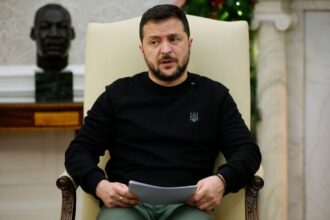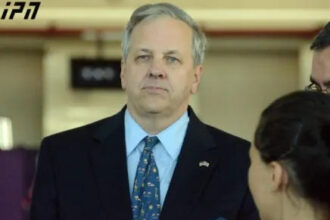Russia recently announced that it is revising its nuclear weapons doctrine, which has raised concerns about what this means and whether it signifies a significant escalation in its war in Ukraine. Deputy Foreign Minister Sergei Ryabkov stated in an interview that the decision to change the doctrine was due to the “escalation course of our Western adversaries,” but did not provide details on the modifications or when they will take effect.
The current nuclear doctrine, set out by President Vladimir Putin in 2020, allows for the use of nuclear weapons in the event of a nuclear attack by an enemy or if a conventional attack threatens the existence of the state. It also permits the use of nuclear weapons if Russia receives warning of an imminent nuclear attack, not just after confirmation of a strike on Russian targets. Additionally, the doctrine allows for the use of nuclear weapons in response to conventional attacks on vital facilities, making it difficult to detect and retaliate against a nuclear strike.
The modification of the doctrine in 2020 was driven by military considerations, including advancements in conventional missile systems. However, the recent announcement of changes to the doctrine seems to align more with Russia’s pattern of saber-rattling to discourage and limit Western support for Ukraine.
The Putin government has a history of making nuclear threats, with over 50 instances of senior Russian officials making direct or indirect nuclear threats since the full-scale invasion of Ukraine in 2014. For example, when Putin announced a “special military operation” on the first day of the invasion, he placed Russian nuclear forces on high combat alert and warned that anyone who tries to impede Russia will face consequences never seen before in history.
Former President Dmitry Medvedev has also made numerous threats, both vague and specific, including suggesting that any attack on Crimea, the provision of Western arms to Ukraine, Finland and Sweden joining NATO, a successful counteroffensive by Ukrainian forces in eastern Ukraine, and strikes by Ukraine on Russian missile sites could invite a nuclear response. Last year, Foreign Minister Sergei Lavrov issued a similar warning about the Western supply of F-16 fighter jets to Ukraine.
Some of Putin’s associates have even mentioned the possibility of a nuclear attack against the United Kingdom or using nuclear weapons as a warning against Ukrainian cities to demonstrate Russia’s seriousness against what it portrays as Western aggression. These threats have been accompanied by actions such as holding drills involving nuclear weapons and stationing tactical nuclear weapons in Belarus to signal Russia’s determination.
In conclusion, Russia’s recent announcement of changes to its nuclear weapons doctrine has raised concerns about its intentions and the potential for further escalation in the conflict in Ukraine. The history of Russian nuclear threats and actions to back them up only adds to the tension and uncertainty surrounding this issue.
Read More @ euromaidanpress.com




